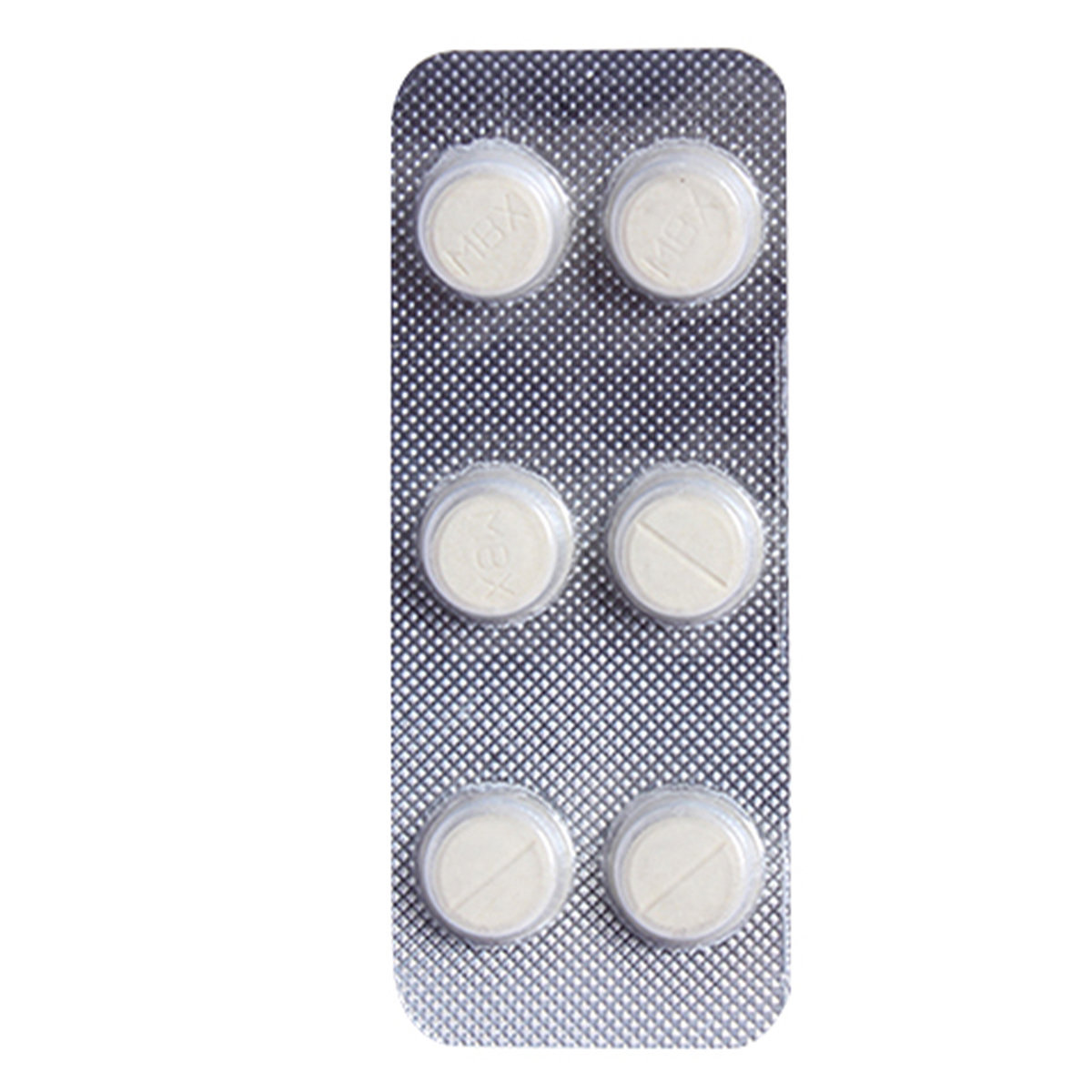Lupimeb 100Mg Tablet

MRP ₹13.38
(Inclusive of all Taxes)
₹2.0 Cashback (15%)
know your delivery time
Provide Delivery Location
Composition :
Manufacturer/Marketer :
Consume Type :
Expires on or after :
Return Policy :
NPPA :

Secure Payment

Trusted by 8 Crore Indians

Genuine Products
Therapeutic Class
Country of origin
Manufacturer/Marketer address
Disclaimer
Alcohol
Safe if prescribed
Please do not drink alcohol with this Lupimeb 100Mg Tablet because it may produce drowsiness as a side effect.
Pregnancy
Consult your doctor
Lupimeb 100Mg Tablet belongs to pregnancy category C. Do not take Lupimeb 100Mg Tablet if you are pregnant or planning for pregnancy as it may cause fetal harm. Please consult your doctor if you have any concerns regarding this.
Breast Feeding
Consult your doctor
Lupimeb 100Mg Tablet may pass into breast milk that may cause harm to the baby. Please consult your doctor if you have any concerns regarding this.
Driving
Safe if prescribed
If you experience drowsiness, hypotension, dizziness, or a headache as side-effects when using Lupimeb 100Mg Tablet then it may not be safe to drive or operate heavy machinery.
Liver
Consult your doctor
Dose adjustment may be needed in patients with liver impairment. Please consult your doctor if you have a liver impairment or any concerns regarding this.
Kidney
Consult your doctor
Dose adjustment may be needed in patients with kidney impairment. Please consult your doctor if you have kidney impairment or any concerns regarding this.
Children
Safe if prescribed
Lupimeb 100Mg Tablet can be given to children above 2 years if prescribed by the doctor.
Product Substitutes
About Lupimeb 100Mg Tablet
Lupimeb 100Mg Tablet belongs to a group of antiparasitic drugs called 'anthelmintic' used to treat parasite worm infections like pinworm, whipworm, roundworm, hookworm, and other parasites. Parasitic worms are also called intestinal worms or helminths. They live in and feed on the hosts leading to weakness and diseases. Common types of intestinal worms are roundworms and flatworms such as tapeworms and flukes.
Lupimeb 100Mg Tablet contains ‘Mebendazole’, which works by inhibiting tubulin polymerization. This causes metabolic disruption and energy depletion in the parasite, which leads to its immobilization. Thereby, Lupimeb 100Mg Tablet kills the susceptible helminth and treats the infection.
Take Lupimeb 100Mg Tablet as prescribed. You are advised to take Lupimeb 100Mg Tablet for as long as your doctor has prescribed it for you, depending on your medical condition. You may experience certain common side-effects such as abdominal pain, diarrhoea, not being hungry, gas, and upset stomach. Most of these side effects do not require medical attention and will resolve gradually over time. However, you are advised to talk to your doctor if you experience these side effects persistently.
Lupimeb 100Mg Tablet might increase the chances of getting an infection; maintain proper hygiene, and try to stay away from people with infections, flu or cold. Consult your doctor if you notice unusual bleeding or bruising as you may bleed or bruise easily while taking Lupimeb 100Mg Tablet. Do not take Lupimeb 100Mg Tablet if you have any allergies, liver problems, and intestinal problems. Inform your doctor before taking Lupimeb 100Mg Tablet if you are pregnant or planning for pregnancy, as it may cause fetal harm. If you are a breastfeeding mother, immediately contact your doctor because Lupimeb 100Mg Tablet passes into breast milk.
Uses of Lupimeb 100Mg Tablet
Medicinal Benefits Mweb
Key Benefits
Lupimeb 100Mg Tablet belongs to a group of anthelmintic medicines used to treat worm infections such as pinworm, whipworm, roundworm, hookworm, and other parasites. Lupimeb 100Mg Tablet contains ‘Mebendazole’, which works by inhibiting tubulin polymerization. This causes metabolic disruption and energy depletion in the parasite, which leads to its immobilization. Thereby, Lupimeb 100Mg Tablet kills the susceptible helminth and treats the infection.
Directions for Use
Side Effects of Lupimeb 100Mg Tablet
- Abdominal pain
- Diarrhoea
- Not hungry
- Gas
- Upset stomach
Drug Warnings
Lupimeb 100Mg Tablet might increase the chances of getting an infection; maintain proper hygiene, and try to stay away from people with infections, flu, or cold. Consult your doctor if you notice unusual bleeding or bruising as you may bleed or bruise easily while taking Lupimeb 100Mg Tablet. Do not take Lupimeb 100Mg Tablet if you have any allergies, liver problems, and intestinal problems. Inform your doctor before taking Lupimeb 100Mg Tablet if you are pregnant or planning for pregnancy, as it may cause fetal harm. If you are a breastfeeding mother, immediately contact your doctor because Lupimeb 100Mg Tablet passes into breast milk. Lupimeb 100Mg Tablet can be given to children above 2 years if prescribed by the doctor.
Drug-Drug Interactions
Drug-Drug Interactions
Login/Sign Up
Taking carbamazepine with Lupimeb 100Mg Tablet may possibly reduce the blood levels and effects of Lupimeb 100Mg Tablet.
How to manage the interaction:
Although taking carbamazepine and Lupimeb 100Mg Tablet together can possibly result in an interaction, it can be taken if your doctor has prescribed it. It is good to inform your doctor if you use any other medications.
Taking Lupimeb 100Mg Tablet and phenobarbital may reduce the blood levels of Lupimeb 100Mg Tablet and make it less effective.
How to manage the interaction:
Although taking Lupimeb 100Mg Tablet and Phenobarbital together can evidently cause an interaction, it can be taken if your doctor has suggested it. Do not stop using any medications without talking to your doctor.
Taking Lupimeb 100Mg Tablet and primidone may reduce the blood levels of Lupimeb 100Mg Tablet and make it less effective.
How to manage the interaction:
Taking Lupimeb 100Mg Tablet with Primidone together can possibly result in an interaction, but it can be taken if your doctor has advised it. If you're taking multiple medications, your doctor can recommend other options that won't cause any problems when taken together. It's important to keep a close eye on your symptoms and contact your doctor right away if you notice any signs of infestation. Do not stop using any medications without first talking to your doctor.
Coadministration of metronidazole with Lupimeb 100Mg Tablet may increase the risk or severity of side effects.
How to manage the interaction:
Although there is a possible interaction between metronidazole and Lupimeb 100Mg Tablet, they can be taken together if your doctor has prescribed them. However, if you experience any unusual symptoms like fever, body ache, painful red rash, cough, peeling of the skin, or Drooling, contact a doctor immediately. Do not stop using any medications without talking to a doctor.
Phenytoin may decrease the blood levels of Lupimeb 100Mg Tablet, which may make Lupimeb 100Mg Tablet less effective in treating your condition.
How to manage the interaction:
Although taking phenytoin and Lupimeb 100Mg Tablet together can possibly result in an interaction, it can be taken if your doctor has prescribed it. Do not discontinue any medications without consulting a doctor.
When Lupimeb 100Mg Tablet is taken with Fosphenytoin, the amount of Lupimeb 100Mg Tablet in the blood may decrease.
How to manage the interaction:
Although taking Lupimeb 100Mg Tablet and Fosphenytoin together can evidently cause an interaction, it can be taken if your doctor has suggested it. However, if you experience any unusual symptoms contact your doctor know right away. Do not stop using any medications without first talking to a doctor.
Taking Lupimeb 100Mg Tablet and meclizine may reduce the blood levels of Lupimeb 100Mg Tablet and make it less effective.
How to manage the interaction:
There may be a possibility of interaction between Lupimeb 100Mg Tablet and Ritonavir, but it can be taken if prescribed by a doctor. However, if you experience any unusual symptoms contact your doctor right away. Do not stop using any medications without first talking to your doctor.
Drug-Food Interactions
Drug-Food Interactions
Login/Sign Up
Drug-Diseases Interactions
Drug-Diseases Interactions
Login/Sign Up
Drug-Drug Interactions Checker List
- CIMETIDINE
- CARBAMAZEPINE
- METRONIDAZOLE
- RITONAVIR
Habit Forming
Special Advise
- Regular monitoring of blood cell count and liver function is advised during treatment with Lupimeb 100Mg Tablet.
- Lupimeb 100Mg Tablet might increase the chances of getting an infection; maintain proper hygiene, and try to stay away from people with infections, flu, or cold.
- Consult your doctor if you notice unusual bleeding or bruising as you may bleed or bruise easily while taking Lupimeb 100Mg Tablet.
- Lupimeb 100Mg Tablet will not treat a viral infection such as the flu or a common cold.
- Lupimeb 100Mg Tablet can increase the risk of bleeding and infection, so frequent medical tests are required.
- While taking Lupimeb 100Mg Tablet close monitoring of liver function is required for every 2 weeks.
Diet & Lifestyle Advise
- Regularly wash your hands with soap and water, especially after using the toilet and while eating.
- Avoid eating raw fish and meat.
- Thoroughly cook meat before eating.
- Wash all fruits and vegetables properly before consuming them.
- Wash or reheat food that has been around for a long time.
- Avoid contact with soil that may be contaminated with faeces.
- Avoid foods that have been kept open in the markets as they can be contaminated.
- Drink boiled and purified water.
All Substitutes & Brand Comparisons
RX
Out of StockVermil 100mg Tablet
₹5.5
(₹0.83 per unit)
58% CHEAPERRX
Out of StockNuzole 100mg Tablet
Lloyd Healthcare Pvt Ltd
₹5.75
(₹0.86 per unit)
57% CHEAPERRX
Out of StockMebidex 100mg Tablet
₹5.83
(₹0.88 per unit)
56% CHEAPER

Have a query?
Buy best Infections & Infestation products by
Cipla Ltd
Macleods Pharmaceuticals Ltd
Alkem Laboratories Ltd
Lupin Ltd
Abbott India Ltd
Sun Pharmaceutical Industries Ltd
Mankind Pharma Pvt Ltd
Micro Labs Ltd
Aristo Pharmaceuticals Pvt Ltd
FDC Ltd
Intas Pharmaceuticals Ltd
Glenmark Pharmaceuticals Ltd
Ipca Laboratories Ltd
Torrent Pharmaceuticals Ltd
Zydus Healthcare Ltd
Biochem Pharmaceutical Industries Ltd
Zuventus Healthcare Ltd
United Biotech Pvt Ltd
Hetero Drugs Ltd
Emcure Pharmaceuticals Ltd
Alembic Pharmaceuticals Ltd
Indoco Remedies Ltd
Fusion Health Care Pvt Ltd
Dr Reddy's Laboratories Ltd
Leeford Healthcare Ltd
Cadila Healthcare Ltd
Wockhardt Ltd
Zydus Cadila
GlaxoSmithKline Pharmaceuticals Ltd
Morepen Laboratories Ltd
Blue Cross Laboratories Pvt Ltd
Cadila Pharmaceuticals Ltd
Converge Biotech Pvt Ltd
Elder Pharmaceuticals Ltd
Hetero Healthcare Pvt Ltd
Pfizer Ltd
AAA Pharma Trade Pvt Ltd
Gufic Bioscience Ltd
Mylan Pharmaceuticals Pvt Ltd
Corona Remedies Pvt Ltd
Wallace Pharmaceuticals Pvt Ltd
Apex Laboratories Pvt Ltd
Medishri Healthcare Pvt Ltd
Akumentis Healthcare Ltd
Alniche Life Sciences Pvt Ltd
Hegde & Hegde Pharmaceutica Llp
Veritaz Healthcare Ltd
Ranbaxy Laboratories Ltd
Koye Pharmaceuticals Pvt Ltd
Shreya Life Sciences Pvt Ltd
Overseas Health Care Pvt Ltd
Biocon Ltd
Indchemie Health Specialities Pvt Ltd
Medley Pharmaceuticals Ltd
Brinton Pharmaceuticals Ltd
J B Chemicals & Pharmaceuticals Ltd
Unifaith Biotech Pvt Ltd
Ajanta Pharma Ltd
Biochemix Health Care Pvt Ltd
Natco Pharma Ltd
Samarth Life Sciences Pvt Ltd
Unichem International
Laborate Pharmaceuticals India Ltd
Unipark Biotech Pvt Ltd
Zymes Bioscience Pvt Ltd
Indiabulls Pharmaceuticals Pvt Ltd
Neon Laboratories Ltd
Vasu Organics Pvt Ltd
DR Johns Lab Pharma Pvt Ltd
East West Pharma India Pvt Ltd
La Renon Healthcare Pvt Ltd
Medgen Drugs And Laboratories Pvt Ltd
Novartis India Ltd
Canixa Life Sciences Pvt Ltd
Icarus Health Care Pvt Ltd
Lincoln Pharmaceuticals Ltd
Celon Laboratories Pvt Ltd
Concept Pharmaceuticals Ltd
Klm Laboratories Pvt Ltd
Nicholas Piramal India Ltd
Systopic Laboratories Pvt Ltd
Yuventis Pharmaceuticals
Capital Pharma
German Remedies Ltd
Pristine Pearl Pharma Pvt Ltd
Unison Pharmaceuticals Pvt Ltd
Aurz Pharmaceutical Pvt Ltd
Clover Health Care Pharma
Kepler Healthcare Pvt Ltd
Allites Life Sciences Pvt Ltd
Auspharma Pvt Ltd
Intra Life Pvt Ltd
Jolly Healthcare
Linux Laboratories Pvt Ltd
Ozone Pharmaceuticals Ltd
Cachet Pharmaceuticals Pvt Ltd
Comed Chemicals Ltd
Delcure Life Sciences Ltd
Fresenius Kabi India Pvt Ltd
Khandelwal Laboratories Pvt Ltd
Frequently Bought Together








